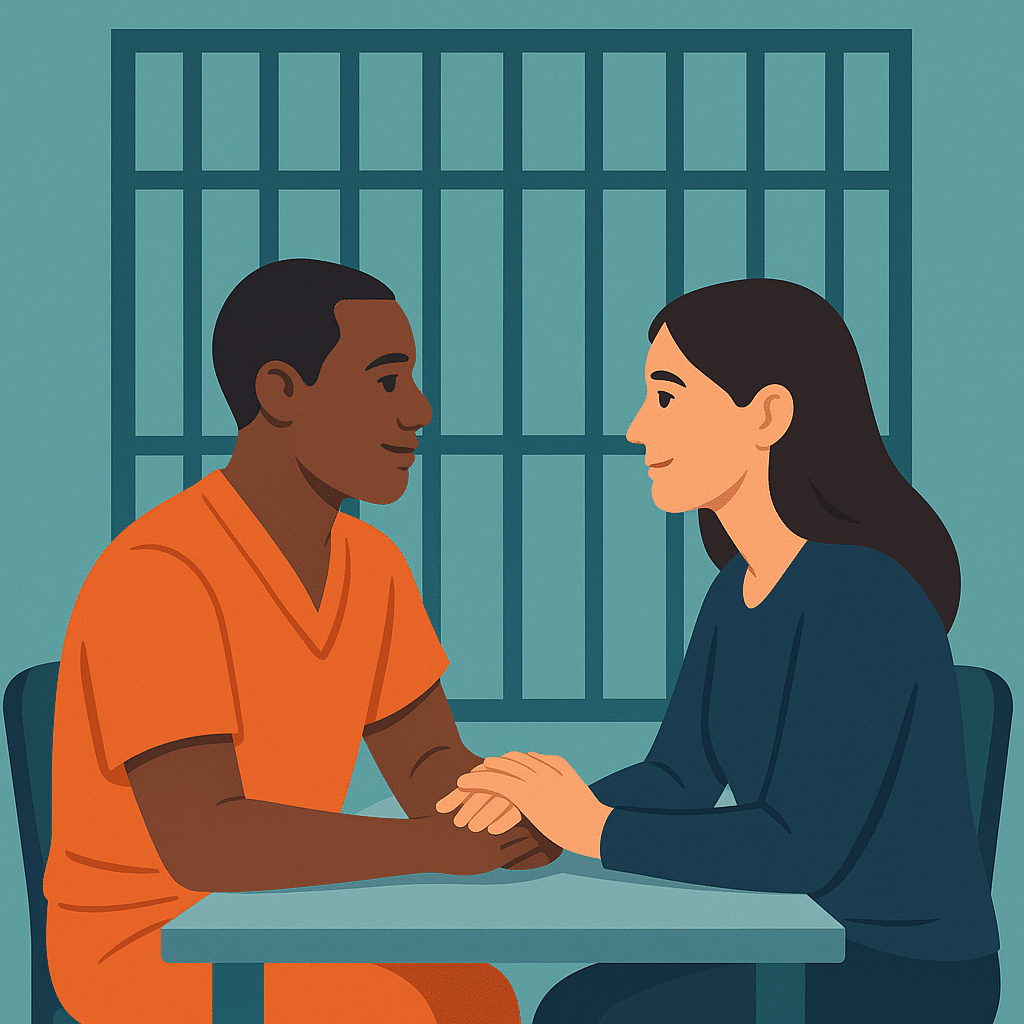
Many people wonder whether conjugal visits—sometimes called “extended family visits” or “family reunion visits”—are allowed in Maryland correctional facilities. If you or a loved one is incarcerated in Maryland, it’s important to understand what the law allows, how visitation works, and what alternatives are available.
Are Conjugal Visits Allowed in Maryland?
The short answer is no—Maryland does not allow conjugal visits. Unlike a few states such as California, New York, or Washington, Maryland’s Department of Public Safety and Correctional Services does not offer programs where an incarcerated person can spend extended private time with a spouse or partner.
This means that individuals serving time in state prisons or local detention centers in Southern Maryland—including Prince George’s County, Charles County, Calvert County, and St. Mary’s County—cannot receive overnight or conjugal visits.
What Visitation Is Allowed in Maryland?
Although conjugal visits are prohibited, Maryland does provide opportunities for families to maintain contact:
- In-Person Visitation: Depending on the facility, inmates can receive scheduled visits in secure visitation areas. These visits are supervised and may be contact or non-contact visits.
- Video Visitation: Many Maryland correctional institutions allow virtual visits using approved video systems. This option helps families who live far from the prison or jail.
- Phone Calls and Mail: Regular communication by phone and letter remains an important way for loved ones to stay connected.
Maintaining family ties has been shown to reduce recidivism, even without conjugal visits.
Why Doesn’t Maryland Allow Conjugal Visits?
Maryland correctional policy reflects security and logistical concerns. The Department of Public Safety and Correctional Services prioritizes:
- Security Risks: Allowing extended private visits would require additional staff, space, and monitoring.
- Uniformity: Most states, like Maryland, do not permit conjugal visits, so the policy is in line with national practices.
- Resource Allocation: Correctional facilities focus on rehabilitation, education, and substance abuse treatment programs rather than conjugal visitation.
What If You’re Facing Incarceration in Maryland?
If you or a loved one is facing a potential jail or prison sentence in Maryland, understanding visitation rules is just one part of preparing for what lies ahead. The most important step is securing an experienced criminal defense lawyer who can fight for your rights before sentencing.
A Southern Maryland criminal defense attorney can help you:
- Challenge the evidence against you.
- Negotiate for reduced charges or alternative sentencing.
- Pursue treatment programs or probation instead of jail time.
Conclusion
While conjugal visits are not available in Maryland, families still have options to stay connected through traditional visitation, phone calls, video sessions, and letters. If you or a loved one is facing incarceration, working with a knowledgeable defense lawyer can make all the difference in protecting your future.
At Southern Maryland Criminal Defense, we help clients in Prince George’s, Charles, Calvert, and St. Mary’s Counties navigate the criminal justice system and fight for the best possible outcome.
👉 Schedule a consultation today to learn how we can help.
